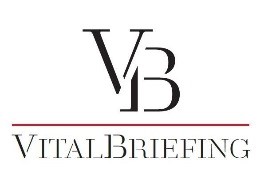European companies and governments clash over choice of listing jurisdiction or domicile
Where public companies list their shares has been politicised in recent weeks, following the decision by UK-based chipmaker Arm to list in New York rather than London, despite intense pressure from the UK government on the company and shareholders, Japan's SoftBank and its Vision Fund. Before SoftBank bought the company for $32bn in 2016, Arm was listed in London with a secondary listing in New York. Meanwhile, Spanish construction and infrastructure group Ferrovial has clashed with the Madrid government over its plans to move head office to the Netherlands, which the company says would facilitate a planned listing in the US. The Spanish government is looking at possible legal moves to dissuade the company, including challenging its legal standing to win public contracts in Spain if it is domiciled abroad.
European listing and corporate domicile rules in spotlight after Arm and Ferrovial moves
SoftBank's Cambridge, England-based chipmaker Arm has blamed complex rules set by Britain's Financial Conduct Authority for its decision to conduct an initial public offering in New York rather than London, a setback for the UK government's efforts to maintain its capital as a global centre for corporate listings. It says rules requiring shareholder approval of related-party transactions are among the obstacles that issuers must deal with. Meanwhile, the Spanish government is reviewing whether it is empowered to block the plans of railway and infrastructure operator Ferrovial to transfer its headquarters to the Netherlands ahead of a planned listing in New York. Spanish law requires foreign bids for participation in domestic infrastructure projects to obtain cabinet approval, although Ferrovial’s strategy to merge with its international subsidiary involves two Spanish-owned companies. Securities regulator CNMV has questioned the company’s reasoning that it needs to move to Netherlands for technical reasons relating to the planned US listing.
Best source: Financial Times (subscription required)
See also: El País (in Spanish)
UK equity fund managers warn pension accounting rule discourages London listings
UK equity fund managers have called for a change in rules requiring companies to record pension scheme deficits on their balance sheets, saying it has led to a shift into bonds by pension funds and contributed to the exodus of UK companies to US stock markets. The rule has shrunk demand for UK stocks, according to Jupiter fund manager Richard Buxton at fund group Jupiter and Newton Investment Management head of UK equities David Cumming. The accounting rule, which was instituted in 2000, has prompted many companies to close defined benefit pension schemes and to hedge their risks with derivatives through liability-driven investment strategies.
Best source: Financial Times (subscription required)
French advisory panel recommends mandatory shareholder votes on sustainability issues
France should require mandatory ‘Say on Climate’ shareholder votes at all companies that are subject to the EU's impending Corporate Sustainability Reporting Directive, according to the Commission on Climate and Sustainable Finance, an advisory panel to financial regulator Autorité des Marchés Financiers. It recommends that the AMF be given powers to intervene if climate motions are not introduced at companies' annual general meetings, and to ensure that they submit climate strategies and plans for decarbonisation to shareholders at AGMs.
Best source: ESG Clarity
See also: Autorité des Marchés Financiers
Buffett’s Berkshire Hathaway accedes to SEC request to improve risk management disclosure
Berkshire Hathaway has agreed to improve its disclosures about how it manages risk in its investments, including those made by chairman Warren Buffett, following a request from the US Securities and Exchange Commission to add detail to its annual proxy filings. The SEC request focuses on the board of directors, asking why the board oversees risk management and to what extent directors speak with managers about future risk. Berkshire Hathaway, which has a market value of $670bn, does not conduct calls with analysts and informs the public mainly through regulatory disclosures as well as remarks at the annual meeting and in Buffett's annual letter to shareholders.
Best source: Reuters (free registration)
Central bank launches consultation on individual accountability framework
The Central Bank of Ireland has launched a three-month consultation on the Central Bank (Individual Accountability Framework) Act, which was signed into law in early March. The legislation includes new conduct standards for senior executives and accountability rules at financial institutions, as well as changes to the fitness and probity regime for regulatory approval of high-level appointments.
Best source: RTÉ News
UniCredit board member resigns after unsubstantiated allegations of leaks about CEO remuneration
Jayne-Anne Gadhia, non-executive director and head of the remuneration committee at Italy's UniCredit, has resigned after becoming the target of allegations that she had leaked information about remuneration arrangements for CEO Andrea Orcel, which were not substantiated and eventually withdrawn. Gadhia, a former CEO of Virgin Money in the UK, was interviewed by UniCredit chairman Pier Carlo Padoan and is likely to conduct an exit interview with the European Central Bank as a routine supervisory measure. Orcel was previously involved in a dispute over a withdrawn offer to become CEO of Spain's Santander, which last month was ordered by a Madrid court to pay him €51.4m in compensation.
Best source: Financial Times (subscription required)
Investors unhappy with European companies’ emissions targets in executive remuneration links
Investors in European companies are dissatisfied with the way they link executive remuneration to carbon emission reduction targets, according to research by PwC UK and the London Business School’s Leadership Institute. Their report, Paying For Net Zero, finds that 78% of STOXX Europe 50 companies include some carbon target measures, but only 14% of the companies meet investor expectations that climate metrics should play a significant, measurable and transparent role in remuneration levels.
Best source: Pensions & Investments (subscription required)
US Senate votes to overturn rule authorising use of ESG criteria in retirement plan strategies
The US Senate has voted by a majority of 50 to 46 to overturn a rule introduced by the Biden administration's Labor Department authorising retirement scheme managers to take environmental, social impact and governance criteria into account in making investment decisions and exercising shareholder rights such as proxy voting. The chamber's 48 Republican senators were joined by two Democrats, Jon Tester from Montana and Joe Manchin of West Virginia. Following a 216-to-204 vote in favour in the House of Representatives, the measure will now go to president Joe Biden, who has promised to veto it. The Republican legislators involved invoked the Congressional Review Act, allowing them to bypass the customary 60-vote threshold in the Senate to overturn the Labor Department rule.
Best source: Wall Street Journal (subscription required)
See also: Financial Times (subscription required)
See also: Reuters (free registration)
International Sustainability Standards Board chairman expects at least 40 countries to introduce climate reporting in 2024
International Sustainability Standards Board chairman Emmanuel Faber expects more than 40 countries to adopt its corporate sustainability disclosure framework when it is introduced next year. Noting that 45 countries supported the establishment of the board in 2021, he believes they will all introduce the S1 standard, on sustainability-related financial information, and S2, on climate-related disclosures, as a baseline for their own reporting standards. The board will shortly begin consultations on adding more detail to the issues covered by its standards framework, including those relating to biodiversity, water, deforestation and human capital.
Best source: Reuters (free registration)
Powered by




